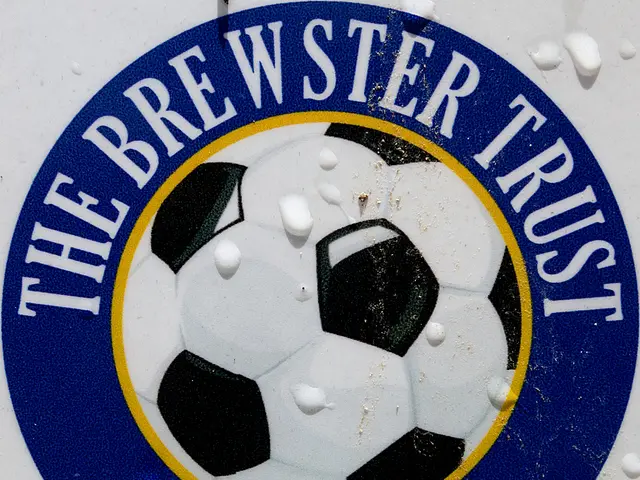Trump's Diminishing Popularity: A Crisis of Confidence
Visualization of Trump's Falling Public Approval in U.S., 100 Days Post His White House Return
As Donald Trump hit the 100-day mark in the White House, on April 30, his popularity plummeted to an all-time low. According to various opinion polls, he's a contender for the least popular U.S. president at this stage of his term in several decades. The business mogul's radical economic decisions have left him facing more disapproval than support among the general public. Even his previous strong suit, immigration policy, is now being questioned by a majority of Americans, recent polls suggest.
A Steep Drop in Approval
U.S. presidents typically begin their terms with a degree of populist enthusiasm, but Trump's decline has been swifter and steeper than usual. American journalist G. Elliot Morris, a specialist in opinion poll analysis, tracks the evolution of Trump's approval rating on his website. As of today, Trump garners the support of an average of 43.5% of Americans (with a margin of error of one point), a drop of more than 7 percentage points from his peak of 50.7%, achieved a week after his inauguration. On the flip side, his disapproval rating has risen to 53%, compared to 41.8% at its lowest point on January 24.
An Unpopular Economic Agenda
While it's tough to pinpoint the specific cause of each of Trump's decisions, polls agree on a general disapproval of his economic policy. The President faces negative feedback on the economy, trade, and cost of living. Even his immigration policy, once a strong point, is now losing public favor, with unfavorable opinions outweighing the favorable for the first time since his inauguration.
This disapproval is particularly damaging for Trump, who leveraged economic renewal as a key promise during the November 2024 presidential election. However, he is now judged more harshly than during his first term. The Economist notes that Trump's approval rating on economic issues is at its lowest level, even worse than during the COVID-19 crisis.
Record-Breaking Unpopularity
A comparison of Trump's approval rating with that of his predecessors underscores the magnitude of his unpopularity: Joe Biden enjoyed a 14-point advantage in favorable opinions over unfavorable ones after 100 days in office, George W. Bush boasted a 27-point advantage, and Barack Obama a 31-point advantage. In contrast, Trump has fallen nearly to the same level seen at the end of his first 100 days in 2017—but with a lower approval rating to begin with in 2025. As a result, he has lost more support than eight years ago to reach the same level, making him the most unpopular U.S. president at this stage of his term since at least World War II, according to several polls published in April, including those by the Washington Post and CNN.
Some political analysts view Trump's drop in popularity as a bad omen for the rest of his term. "Burning through that much goodwill so quickly, and things usually don't improve from there" writes Nate Cohn, the chief political analyst of the New York Times. Trump, for his part, denounced the "fake polls conducted by fake news outlets" on his Truth Social network, calling for an investigation into "election fraud".
- The disapproval of Donald Trump's economic policy, including decisions on the economy, trade, and cost of living, averages more than he did after his inauguration.
- Even Trump's previous strong point, immigration policy, now averages unfavorable opinions from a majority of Americans, according to recent polls.
- As of today, Donald Trump garnered the support of an average of 43.5% of Americans, a drop of more than 7 percentage points from his peak, noted by several opinion polls.
- Trump's radical economic decisions have led to more disapproval than support among the general public, particularly damaging as economic renewal was a key promise during the November 2024 presidential election.
- The President's unpopular economic agenda and immigration policy have contributed to his record-breaking unpopularity compared to his predecessors, including Joe Biden, George W. Bush, and Barack Obama.
- Some political analysts view Trump's drop in popularity as a bad omen for the rest of his term, suggesting that things usually don't improve from this point.
- In response to the unfavorable polls, Trump denounced them as "fake polls" conducted by "fake news outlets," calling for an investigation into "election fraud" on his Truth Social network.









